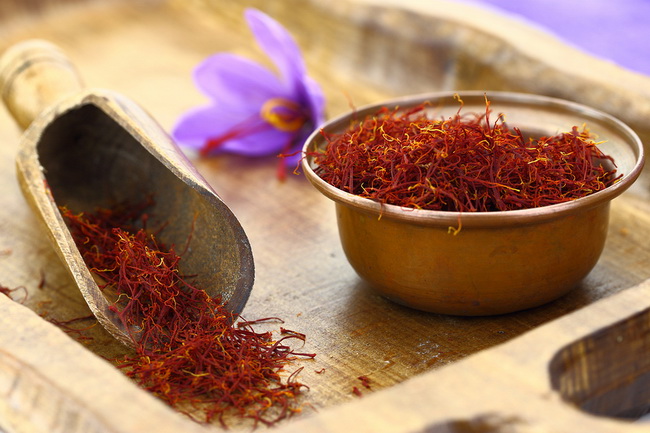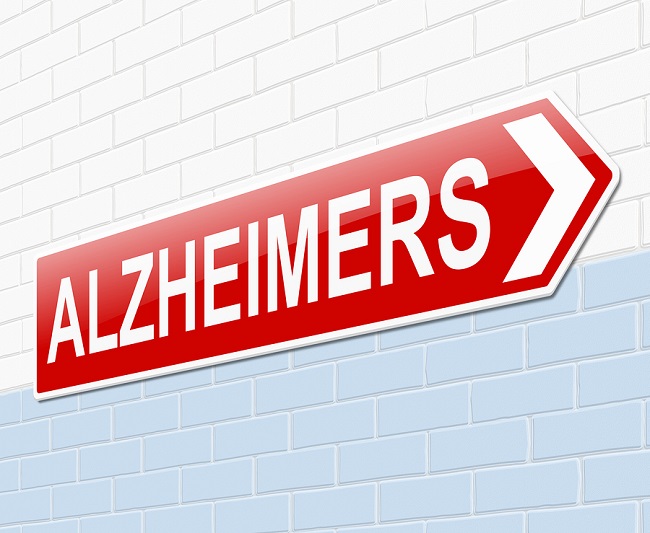- Make It Yourself Lavender Heart-Shaped Bath Bombs!
- 20 Things You Never Knew About “Down There”
- 12 Best Foods For Those Suffering From Arthritis Pain
- 12 Personal Hygiene Mistakes Almost Everyone Makes (Mom Never Told You About #4!)
- 15 Medicinal Plants And Herbs From The Cherokee People
- 12 Mind-Blowing Benefits Of Drinking Coconut Water During Pregnancy
- 12 Outstanding Winter Foods That Won’t Fatten You Up Like A Christmas Turkey
The Power Of This One Spice For Mental Health And So Much More

Photo credit: bigstock.com
Closely related to that super spice turmeric and commonly used in most Persian, Turkish, and Indian cuisine, this spice has been used for thousands of years as a flavor enhancer, a coloring agent for cloth, and an element in traditional medicine. Modern research has backed up many of its claims, including its powerful anti-inflammatory compounds, but more surprisingly, studies have shown that this spice appears to be most effective for many when it comes to regulating mood, improving overall mental health, and lifting depression. It has also been used infighting many different types of cancer.
Which spice can do all this? Saffron.
Like most natural methods, one size does not fit all, and what works for one person many not work for another. However, a recent meta-analysis that looked at years of saffron research discovered that numerous clinical trials show this spice can have a significant impact on mental health issues such as depression. Although the exact mechanism is not fully understood, scientists believe this spice might be effective because of its high antioxidant content.
Saffron has a much lower risk-to-benefit ratio when you compare it to typical pharmaceutical solutions. This means that by adding saffron extract to your routine, you might be able to consume a smaller amount of your medications. Remember that you should never stop taking medications without speaking to your doctor first. Doing so can have serious side effects and complications.
Scientists at Murdoch University reviewed published research on saffron. All studies were randomized, double blind, clinical trials done through April 2014, and they all involved using saffron as a possible antidepressant.
This review covered six studies of more than 230 subjects with clinical depression, who used saffron as a means of treatment. Scientists found that saffron was just as effective in treating those diagnosed with major depressive disorders as the typical antidepressants, such as Tofranil or Prozac. Researchers were surprised that every single study found saffron was just as effective as pharmaceutical antidepressants.
In fact, saffron had fewer side effects than pharmaceuticals (no surprise there). The most common side effects of antidepressants are sedation, sexual dysfunction, tremors, and constipation. The most common side effect of saffron was mild stomach upset. Other side effects were increased appetite, nausea, and headaches.
Continue to Page 2

Photo credit: bigstock.com
Yet another study, published in the journal Progress in Neuropsychopharmacology and Biological Psychiatry in 2007, discovered that 15 mg of saffron was just as effective as 10 mg of Prozac in treating mild to moderate depression. In fact, this study showed that a full 25 percent of subjects went into full remission.
Scientists agree that many additional studies need to be performed — studies involving thousands of people, not just a few hundred — but the initial outlook is very promising.
By the way, this review stated most subjects found that a 15 mg supplement consumed twice a day was sufficient to relive their depression.
There really must be something magical to this spice. Although it can be expensive (it takes about 150 flowers to make 1,000 mg of dry saffron threads), it has defied every man-made attempt to tame it. These flowers must still be harvested by hand, in the same way they have been harvested for thousands of years, and no matter how hard farmers have tried to make hybrids that will produce more flowers, they have not been successful.
The chemistry of saffron is super complex, with more than 150 volatile compounds that science still does not fully understand, even after all these years.
You might have even heard about saffron in the news lately for its weight loss possibilities as it does appear to have a suppressing effect on the appetite. Dr. Oz is certainly pushing it, but saffron has so much more to offer than being a mere weight loss supplement.
Saffron has been shown in numerous studies to modulate at least two biological pathways in the body:
- Anti-anxiety
- Anti-carcinogenic
- Anti-mutagenic
- Anti-proliferative
- Apoptotic
- Calcium channel blocker
- Chemo-preventative
- Cyclooxygenase inhibitor
- Sedative
- Neuroprotective
- Tumor necrosis factor alpha inhibitor
- Prostaglandin antagonists
- Hypotensive
- Excitatory amino acid agonist
- Chemo-therapeutic
- Cardio-protective
- Bronchodilator
- Antioxidant
- Aphrodisiac
- Anti-depressive
Continue to Page 3

Photo credit: bigstock.com
One 22-week, randomized, double blind study of saffron focused on those with mild to moderate Alzheimer’s disease. This study, published in 2010, showed that those who consumed 15 mg of a saffron extract twice each day was just as effective as Aricept at 5 mg twice a day. Another study, also published in 2010, looked at a 16 week trial of 15 mgs of saffron consumed twice each day. It, too, was found to be just as effective as Aricept for those with mild to moderate Alzheimer’s disease.
Other potential medicinal properties of this spice that have had positive effects in clinical trials are:
- Low sperm count (asthenozospermia)
- Chemotherapy-induced liver toxicity
- Diabetic neuropathy
- Erectile dysfunction
- Inflammation
- Middle cerebral artery occlusion
- Withdrawal from opiate addiction
- Psoriasis
- Wound healing
- Respiratory diseases
- Multiple sclerosis
- Liver cancer
- High blood pressure
- Irregular menstrual cycles
- Colorectal cancer
- Cardiac hypertrophy
- Anxiety attacks
Of course, as with any herbal products, even ones considered to be as safe like saffron, we urge you to use caution. Using it as a spice to flavor your foods will cause you no harm, but when consumed in larger quantities, especially when mixed with other prescription drugs or even over-the-counter drugs, you can have drug interactions that cause serious harm. Never stop taking your medication without speaking to your doctor, and never begin an herbal supplement program without talking to your doctor or medical herbalist.
SEE ALSO: 22 Top Foods to Help You Sleep Better (No Pills or Alcohol Needed!)
There are numerous measures that you can take to protect your mood and strengthen it without pharmaceutical drugs. Although antidepressants are necessary for some people, always try natural methods first. Ensure you get plenty of vitamin D from the sun, get seven to nine hours of sleep every night, 30 minutes of moderate exercise most days, and eat a healthy diet that includes plenty of omega-3 fatty acids like the type found in fatty fish, chia seeds, and flax seeds.
References:





























